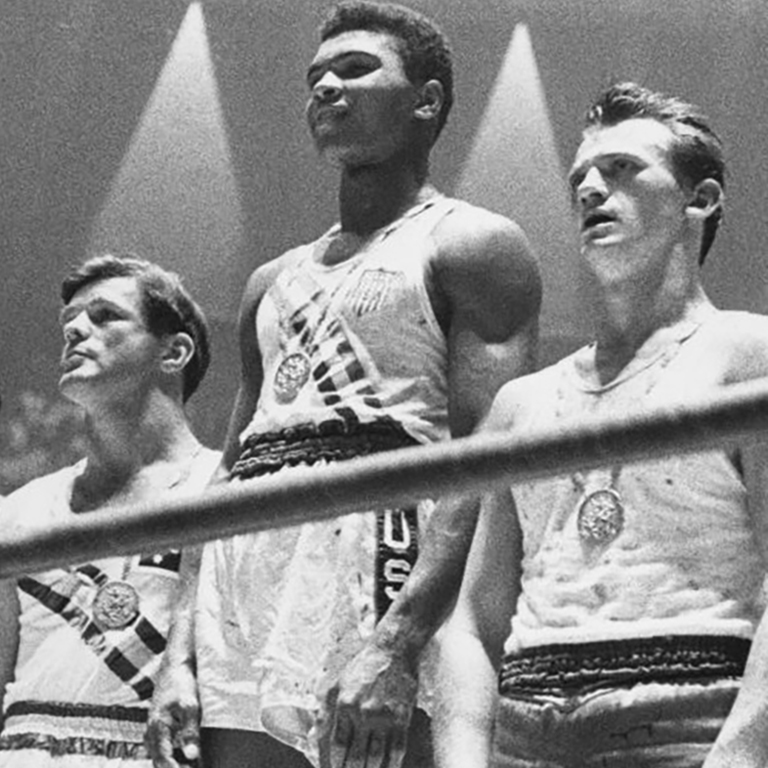Cooper Harriss's talk “Double Cross: Muhammad Ali’s Gold Medal and the Irony of American Religion” is part of ”The Champ Comes Back to IU: The Life and Times of Muhammad Ali,” presented by the Islamic Studies Program, the Office of the Vice Provost for Diversity & Inclusion, the IU Arts and Humanities Council, and the Gayle Karch Cook Center.
In 1960 Cassius Clay (not yet Muhammad Ali) “fought for his country” in the Rome Olympics, winning a gold medal and becoming an “exceptional” American in the process. He would later (reportedly) throw this medal into the Ohio River following a racist encounter in his hometown of Louisville—an event that presages the boxer’s conversion to Islam and 1966 refusal to “fight for his country” in Vietnam. This refusal, understood as a sincere exercise of religious conscience, takes exception to the exceptionalism that the medal implies. It also makes him, in the long run, all-the-more exceptional as a champion of religious freedom—a property derived from a category (“religion”) that US courts define as “sincerely held belief.” The example of Muhammad Ali’s gold medal provides a home base from which to launch a larger consideration of the boxer’s “double cross” within the irony of American religion.

 The College of Arts
The College of Arts